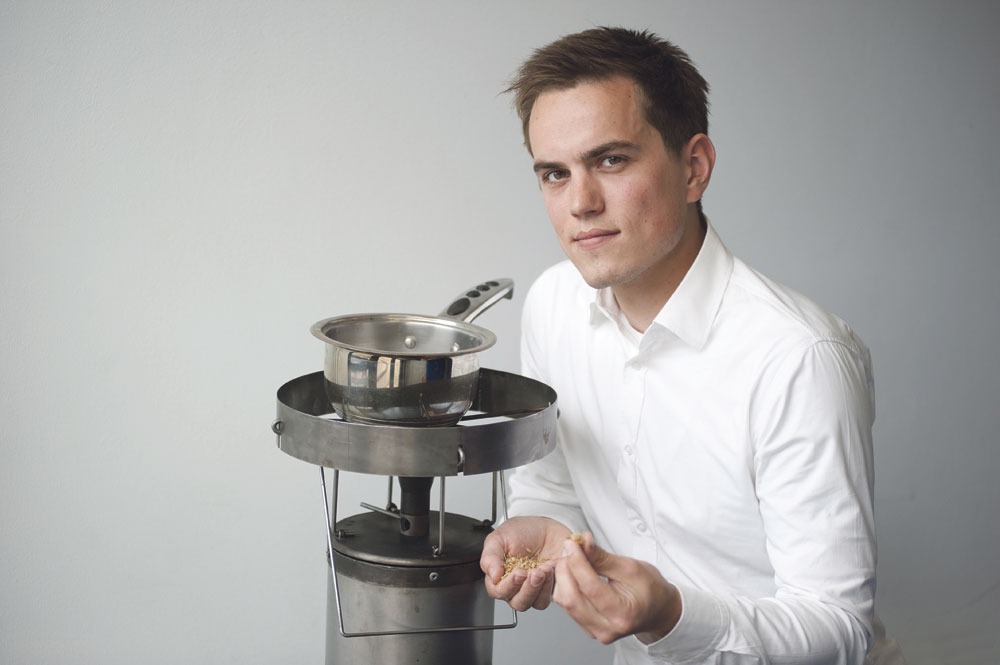The gasification cooker that IDE graduate Rob Hoebe (MSc) developed has the potential of turning the environmental burden of rice waste into productive and health-protecting fuel.
In Vietnam, where Rob Hoebe did most of his research, rice is not only the main source of food but also an important source of air pollution because of the burning of harvest residues. Another major indoor air polluter is cooking on small, open fires that fill homes with thick choking smoke.
So why not use rice waste as a clean kitchen fuel and kill two birds with one stone? The Philippine Professor and inventor Alexis Belonio did just that and was rewarded the Rolex Award for Enterprise for his rice husk stove in 2008. The stove works by gasification of rice chaff in a standing cylinder through which a fan blows. At sufficiently high temperatures and low rates of oxygen, the incomplete burn of biomass yields primarily two flammable gasses: carbon monoxide and hydrogen. The idea is fabulous, but the design had room for improvement.
“The old design is no good and too dangerous in use,” says Hoebe, who improved the design for Spin Asia (Sustainable Product Innovation), a cooperation between the TU and the Vietnam Cleaner Production Centre (VNPC). Hoebe shows that the original cooker that Spin made on the basis of Belonio’s design gets literally red hot in use, is cumbersome to empty and replenish, and emits alarming amounts of toxic, non-burnt carbon monoxide.
Thus the challenge for the graduate from the design for sustainability programme was to improve the existing prototype. While doing that, his Bachelor’s degree in mechanical engineering proved very useful for the detailed study of gasification and burning of gases. Hoebe noticed for example that the original cooker was difficult to tune, which led to incomplete burning of the gases. So Hoebe improved the burner, provided the gasification cylinder with insulation, and improved the mechanism that locks the cooker onto the heavy foot that houses the electrical fan.
Comparative tests have shown that Hoebe’s design almost doubled the fuel efficiency (plus 92 percent), which leads to 40 percent smaller and easier to handle fuel volumes (600 grams of rice husk for 40 minutes of cooking time). Besides, the maximum power has increased by 20 percent and harmful emissions have significantly been reduced, which shows if you compare the pots after cooking: one is black with soot, the other virtually untouched. Hoebe’s thesis, presented on 27 April, was rewarded an 8.5.
His prototype will shortly be shipped to Vietnam for field trials. The next step will be finding a local manufacturer to get the cooker on the market.



Comments are closed.